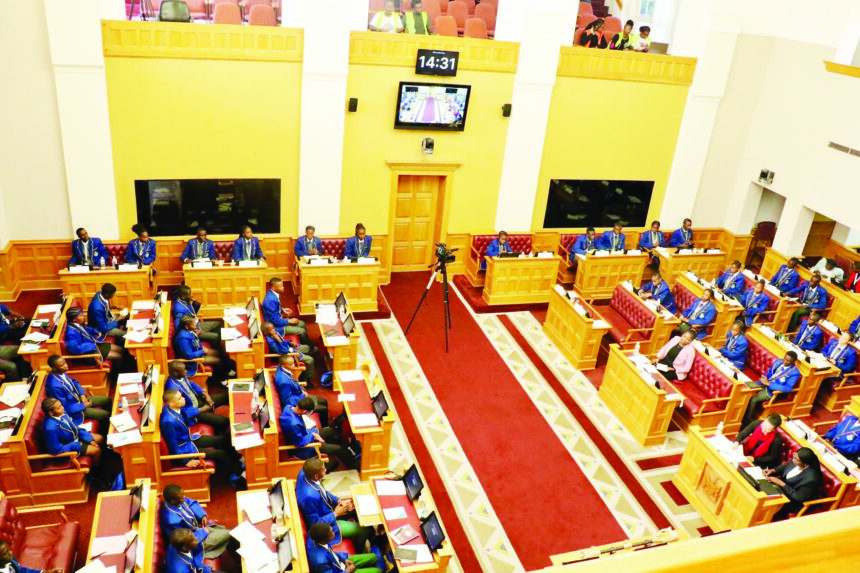Sylvia Hashondali
At least six members of indigenous minority groups formed part of the sixth Session of the Children’s Parliament.
This was revealed by deputy minister of marginalised communities, Royal |Ui|o|oo on Thursday during his address to the Children’s Parliament on empowering the voices of marginalised communities in shaping Namibia’s future.
||Ui|o|oo mentioned the need to transform from the terminology of marginalised communities to indigenous minorities.
“The strengthening of indigenous voices is the strengthening of our economy. I encourage you to be bold, radical, and loud to create change for the future,” said |Ui|o|oo.
Responding to some of the motions from the members of the Children’s Parliament regarding children in marginalised communities “not receiving Harambee”, |Ui|o|oo said the San community benefits from a feeding programme as well as a drought relief programme from Government.
On matters of cultural practices affecting marginalised children, |Ui|o|oo said there are wellness campaigns readily available to assist on such matters, stating, “We are trying our level best to protect our children, and for them to do what non-marginalised people are doing, please don’t just give us questions, kindly also provide solutions, we are here to learn from you.”
“I am working to ensure that marginalised communities benefit from the 2024/25 budget. I have prioritised education, we have a reasonable number of teachers from marginalised communities to show for that,” he noted.
Members of the Children’s Parliament tabled their motions on Wednesday which mainly focus on quality education for every Namibian child.
The deputy speaker, Michael Ajiboso, however said despite the success achieved by the deputy minister of marginalised communities, a lot still needs to be done to ensure the full involvement of indigenous groups in decision making.
The sixth session of the Children’s Parliament, which ended on Friday, focused on addressing educational issues affecting the Namibian child.
Established more than 17 years ago, the Children’s Parliament serves as a platform that enables youth participation in democratic processes and offers insight into legislative procedures and a forum to deliberate challenges they encounter.
-Nampa



